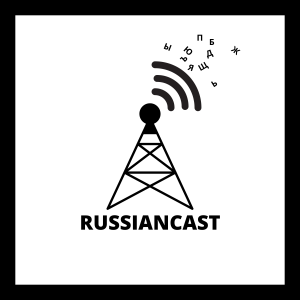Imperfective Verbs
1. Ты когда-нибудь …?
In the past tense, ‘когда-нибудь‘ is mostly used in questions. In questions with ‘когда-нибудь‘, imperfective verbs are normally used in the past tense.
Ты когда-нибудь опаздывал (imp.) на занятия? – Have you ever been late for the classes?
Вы когда-нибудь смотрели (imp.) этот фильм? – Have you ever seen this film?
Он когда-нибудь приходил (imp.) вовремя? – Has he ever come on time?
The same rule works when ‘когда-нибудь’ is not used but implied. In this case the main idea is to find out whether the action has taken place at all:
Ты смотрел (imp.) этот фильм?
Вы читали (imp.) “Войну и мир”?
Вы ходили (imp.) в этот музей?
However, sometimes* in spoken Russian когда-нибудь can be used with perfective verbs to convey the idea of doubt or reproach. This does not constitute an exception, because the usage of ‘когда-нибудь’ here is different and it would be more ‘correct’ to say ‘хоть раз’ (at least once).
Я тебе когда-нибудь сделал что-нибудь плохое? – Have I ever made something bad? At least once? (Doubt)
Ты когда-нибудь сделал что-нибудь хорошее? – Have you ever done anything good? At least once? (Reproach)
Sentences of this type are more emotionally charged. They are more emotional than the same sentences but with imperfective verbs:
Я тебя когда-нибудь обманул? – More emotional.
Я тебя когда-нибудь обманывал? – Neutral.
*‘Sometimes’ means that with some verbs it doesn’t sound natural to all Russian speakers. You should know that it exists, but I advise not to use it at all rather than use it inappropriately.
Мы когда-нибудь опоздали? – Less likely to be used. It sounds like a line in an emotional argument.
Мы когда-нибудь опаздывали? – More likely to be used.
2. Я никогда не …
With the past tense, ‘никогда не’ is always followed by imperfective verbs.
Я никогда не опаздывал (imp.) на занятия. – CORRECT
Я никогда не опоздал (perf.) на занятия. – WRONG
Мы никогда не покупали (imp.) продукты в этом магазине. – CORRECT
Мы никогда не купили (perf.) продукты в этом магазине. – WRONG
Я никогда не ходил (imp.) в этот ресторан. – CORRECT
Я никогда не сходил (perf.) в этот ресторан. – WRONG
— Ты когда-нибудь ходил (imp.) в этот ресторан?
— Нет, я никогда туда не ходил (imp.).
NOTE: Никогда is never used to say that something did not happen in the past what was expected to happen. In this case ‘так и не’ is used with a perfective verb, or is simply dropped.
I waited, but she never called:
Я ждал, но она так и не позвонила (perf.). – CORRECT
Я ждал, но она никогда не позвонила (perf.). – WRONG
Я ждал, но она никогда не звонила (imp.). – WRONG
3. Часто, редко, иногда, всегда, регулярно, каждый день
The words of frequency, such as ‘часто’ (often), ‘редко’ (seldom), ‘иногда’ (sometimes), ‘регулярно’ (regularly) and others with similar meanings are only used with imperfective verbs. It makes sense, because imperfective verbs are used to talk about repeated actions.
Я часто опаздывал (imp.) в школу. – CORRECT
Я часто опоздал (perf.) в школу. – WRONG
Мы редко собирались (imp.) вместе. – CORRECT
Мы редко собрались (perf.) вместе. – WRONG
Каждое лето к бабушке приезжали (imp.) внуки. – CORRECT
Каждое лето к бабушке приехали (perf.) внуки. – WRONG
More examples:
Ты всегда говорил правду. – You always told the truth.
Раньше мы каждые выходные ходили в гости. – We used to visit our friends every weekend.
Они редко виделись. – They rarely met.
Олег всегда покупал продукты в этом магазине. – Oleg would always buy food in this shop.
В прошлом году регулярно шёл дождь. – It rained regularly last year.
Вы всегда нам помогали. – You always helped us.
4. Долго, неделю, два месяца
Words that describe duration of time such as ‘долго’ (long), ‘недолго’ (not long), ‘час’ (an hour), ‘неделю’ (a week), ‘два месяца’ (two months), etc. are normally used with imperfective verbs which describe continuous actions.
Мы два часа решали (imp.) задачу. – CORRECT
Мы два часа решили (perf.) задачу. – WRONG
EXCEPTION. The only exception to this rule is restrictive verbs with the prefixes по-, про-, пере-, от-, and вы-, such as поспать, поработать, почитать, проспать, простоять, прождать, просидеть, проработать, прочитать, переждать, пересидеть, проработать, выстоять, высидеть. Verbs of this type convey the idea of completing the action by doing it for a certain period of time.
…
The rest is available to Subscribers only. Please log in as a Subscriber to continue. Don’t have a Subscription yet? Join RussianCast!
Learn more:
What are perfective and imperfective verbs?
Perfective/imperfective pairs
Present tense
Future tense
Infinitives
Imperative
